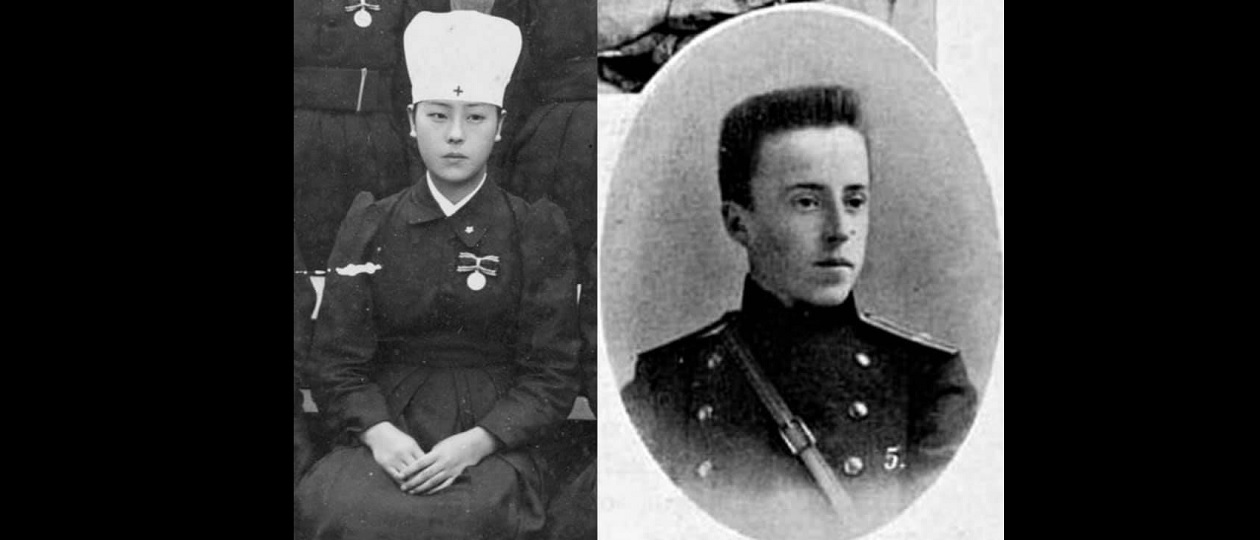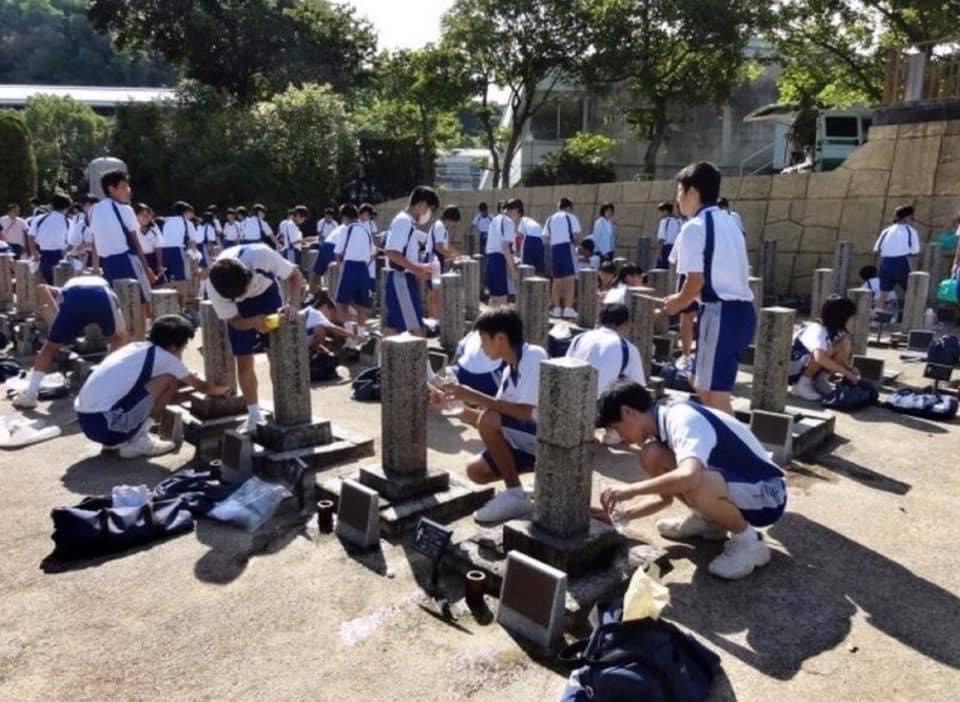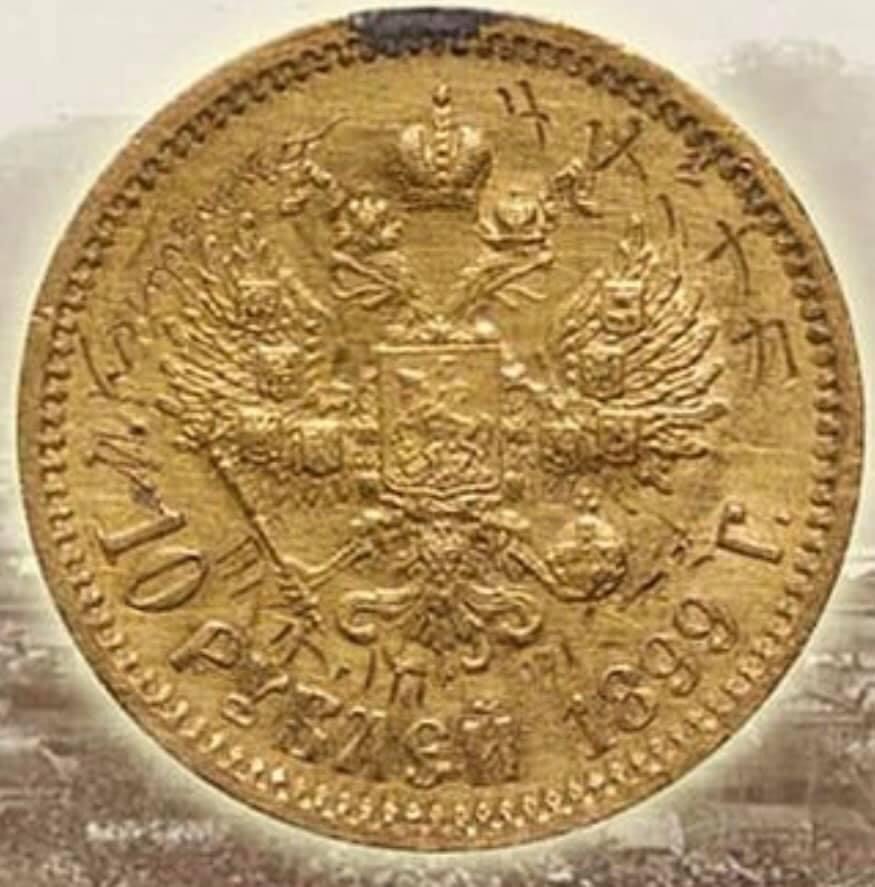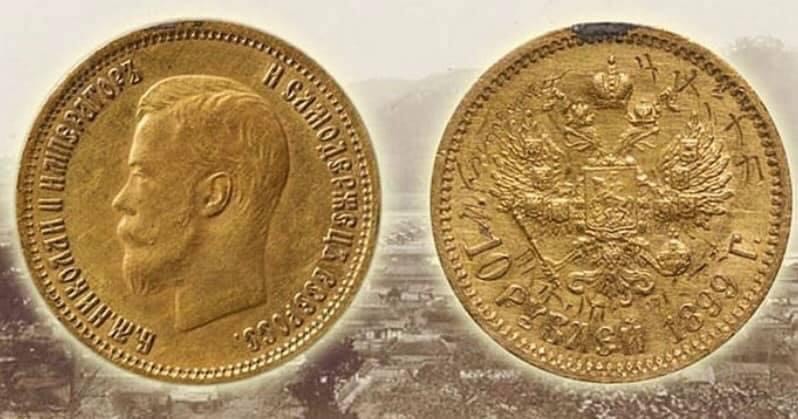
The romantic love story of a Russian prisoner of war and a Japanese nurse served as the plot for the musical Oath on a Coin (Chikai no Koin) by the Japanese Botchan Theater (坊っちゃん劇場, Botchan Theater) from Ehime Prefecture (愛媛県, Ehime-ken).
For almost 30 years, every second Saturday of the month, about a hundred students from the high school in the city of Katsuyama (勝山市, Katsuyama-shi) come to the Russian cemetery.
Here lie the ashes of 98 soldiers and officers who died in Matsuyama (松山市, Matsuyama-shi) from wounds. Every month the same thing is repeated – schoolchildren come here, weed out the grass sprouted between the tombstones, wash the gravestones, put flowers and incense, spend a moment of silence.
During the Russo-Japanese War, this city with a population of only about 30 thousand people was a camp for Russian prisoners of war. It contained about 6,000 Russians.

It was a time when wars were fought according to the rules of the Hague Convention. Those taken prisoner could count on a humane attitude towards themselves and medical assistance.
The officers were free to move around the city, and the soldiers were organized collective trips out of the city.
The authorities also helped in the employment of the prisoners, for which they were even paid a little more than the locals.
In 1985, excavations were carried out there and it was decided to restore the pond located in the center of the castle.
From the bottom were raised syringes, vials of drugs, shards. Of particular interest was a gold Russian coin with a portrait of Emperor Nicholas II minted in 1899.
A quarter of a century later, it was decided to make an exhibition and began to prepare items found during excavations.
One of the archaeologists drew attention to the strange scratches on the coin. They turned out to be an inscription made by a professional hand.
The names of Mikhail Kostenko and Takeba Naka (岳羽 ナカ, Takeba Naka) were found in the inscription. The coin was clearly worn around the neck as a talisman.
Takeba Naka was the name of a nurse working at a hospital in 1904. Mikhail Kostenko was wounded in the leg and was a patient at Matsuyama Hospital in the same year.
Apparently young people fell in love with each other.
But their happiness was short-lived. Five months later, Takeba left the hospital and moved to her parents’ house, where she married a Japanese man 2 years later. Arranged marriages were then common in Japan and, apparently, her parents forced her to part with her beloved, especially those who fought against Japan.

It is known that Takeba and her husband first lived in Tokyo, and then moved with him to Oita Prefecture (大分県, Ōita-ken). She passed away in 1975.
Two months after Takeba’s departure, Lieutenant Kostenko was discharged from the hospital and transferred to Shizuoka (静岡県, Shizuoka-ken, “Quiet Hill”), and after being released from captivity, Mikhail resumed military service.
Further details of his fate are lost, it is only known that he died in the USA in 1928 at the age of 47.

The coin was thrown into the pond either as a sign of eternal love, or when separation became inevitable.
Today, a stele is open to all lovers in the city of Matsuyama in memory of the love of Russian officer Mikhail Kostenko and Japanese nurse Naka Takeba. Newlyweds come there to swear eternal love and receive a symbolic gift – a coin.





